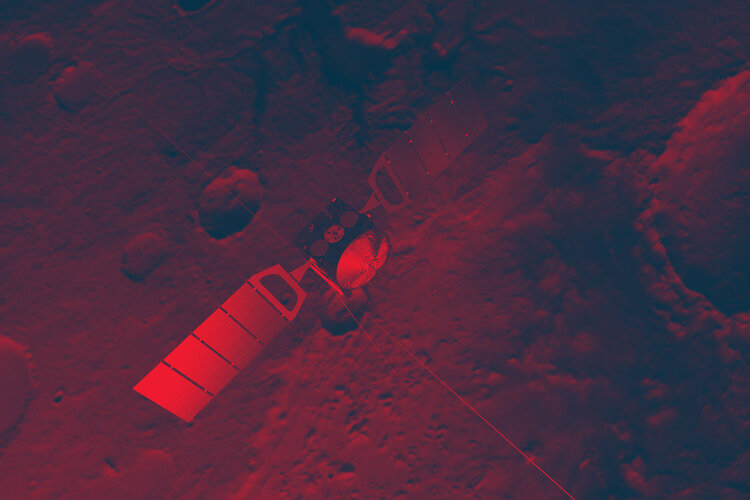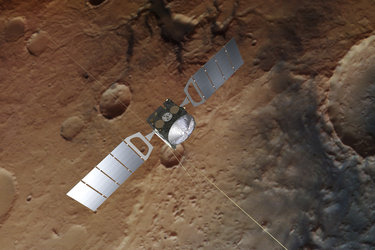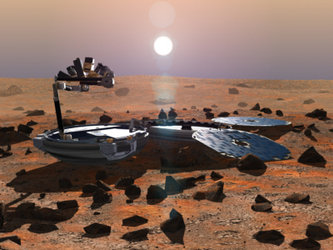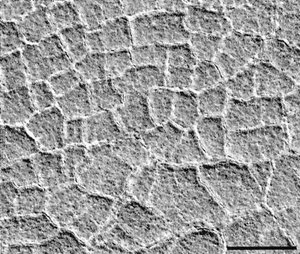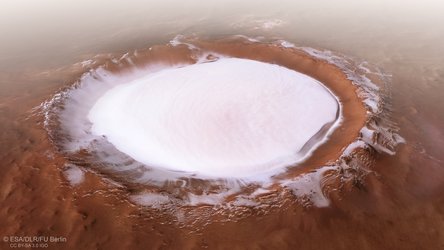Welcome back to Mars: An interview with Rickard Lundin
In 1988, the Russian Phobos 2 satellite took some measurements of the Martian atmosphere before contact was lost after just two months. But these measurements, according to Principal Investigator Dr Rickard Lundin, hold the key to the success of the ASPERA instrument on Mars Express. ASPERA will study how the 'solar wind' interacts with the Martian atmosphere and show how water vapour and other gases could have escaped from Mars.

Rickard Lundin
Professor in Space Physics, Swedish Institute of Space Physics
Principal Investigator, ASPERA, Mars Express
Born: 19 July 1944 in Lycksele, Sweden.
Rickard completed his PhD in Space Physics at the University of Umeå before joining the Swedish Institute of Space Physics. Since then, he has worked on many exciting projects, including an experiment on the first Swedish satellite, Viking, and one on the infamous Mars '96 mission, which landed in the Pacific Ocean after a launch failure.
In his spare time, Rickard has a voracious appetite for all areas of science, as well as music and the arts.
Rickard is married with two daughters.
ESA: How do you feel as Mars Express gets so close to its final destination?
Rickard Lundin
I am feeling optimistic, but I never take anything for granted. The problems are not over until we have started to take measurements. We are just at the beginning of a long series of events, with many obstacles still to be overcome. Around February 2004, I will feel much happier.
My real interest is why the planets in the Solar System have evolved so differently.
ESA: What most fascinates you about Mars?
Rickard Lundin
My real interest is why the planets in the Solar System have evolved so differently, when they all started off with the same things, the same environment, the same magnetic fields? I am fascinated by the fact that the evolutionary processes that have taken place in planets revolving around the Sun is so much broader than we currently realise – the fate of each individual planet is so different.
Ultimately, these measurements could help us decide whether Mars could ever support mankind in the future.
ESA: What is your greatest hope for the ASPERA instrument on this mission?
Rickard Lundin
I am very excited by being able to follow up the results from the Phobos 2 mission. It is only when we compare our measurements with these that we can work out just how quickly water vapour and other gases are being lost from Mars. By doing this, we will be able to understand better the evolution of the Mars atmosphere, and what processes are involved. Ultimately, these measurements could help us decide whether Mars could ever support mankind in the future.
I was wise enough to stay back when my own rockets exploded!
ESA: How did you first become interested in space science?
Rickard Lundin
I think all children are fascinated by the stars. It is very natural to ask the question: why are we here? I started reading about space at an early age, and even made my own rockets. It was very dangerous stuff, but I was wise enough to stay back when they exploded!
ESA: What drives you in your job?
Rickard Lundin
Science itself is a great driver – the need to learn and to know is a powerful motivation. But also, we are social beings, and my work usually brings me together with many colleagues worldwide. The science community is a bit like a big family, and we motivate each other always to find out more.
ESA: What advice would you give somebody who wanted to work in space research?
Rickard Lundin
I think the most natural way to learn about science at an early age is through reading as much about it as you can. These days, there are so many periodicals for people, even those starting from scratch in the field. Later on, there will be people to give you guidance, for instance at University, but I think you have to make a start for yourself.


